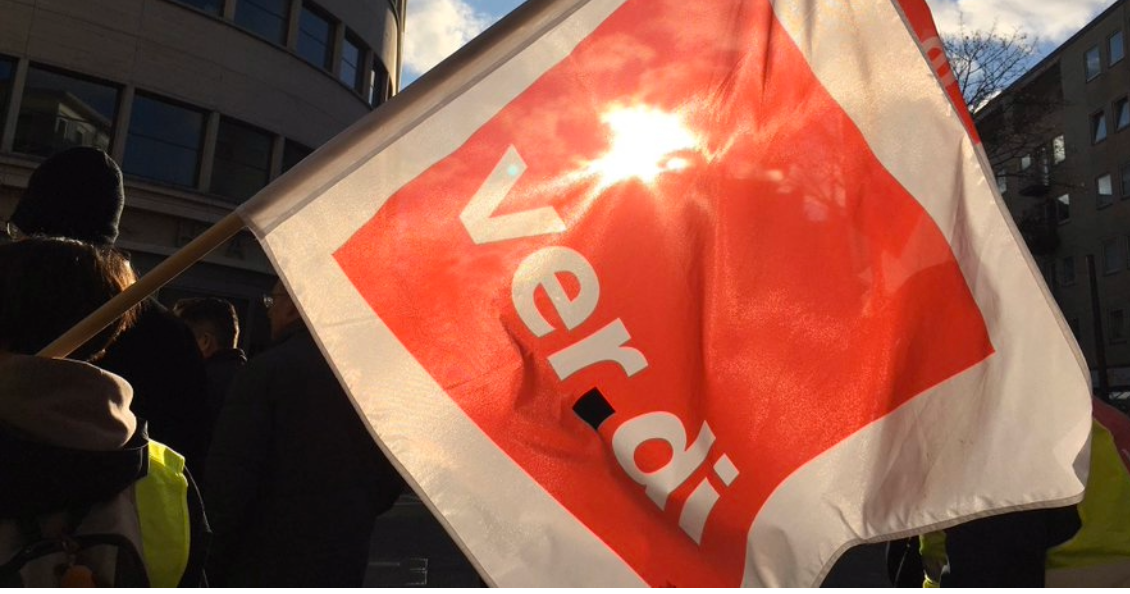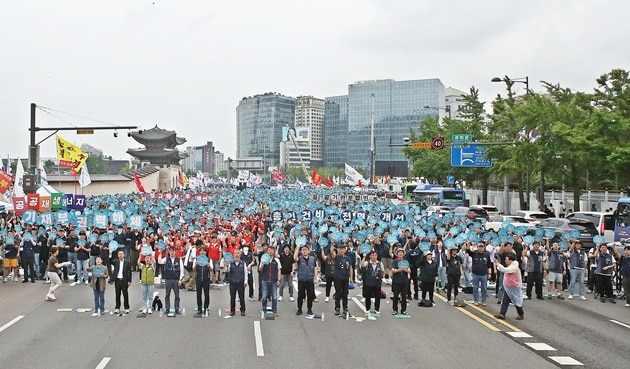UNI Europa in support of striking workers at German public broadcaster ARD
12.03.24
Today, UNI affiliate ver.di called workers of regional branches of the German public broadcaster ARD to strike for a pay rise.
The strike is a reaction to the refusal of ARD management to make meaningful proposals, as management seems to play on time to delay negotiations. One example: during the second round of negotiations at regional broadcaster Südwest Rundfunk (SWR) on 9 March 2024, management announced that an offer on pay would not be made before the end of April.
In a joint public video broadcast today, workers from various broadcasters came together to inform colleagues about the state of negotiations and the reasons for the strike action.
Christoph Schmitz-Dethlefsen, member of the ver.di national executive board responsible for the media sector said: “The frustration among workers is growing after record inflation coupled with very low wage developments. It is completely incomprehensible why ARD management is stalling negotiations.”
“Our demands for increases are important to compensate for the loss of purchasing power. It is urgent to agree as quickly as possible on a fair wage package. But the regional broadcasters of the ARD have so far offered nothing, even though three months have already passed since the expiration of the collective agreements. This is a huge disregard for the day-to-day work of freelancers, workers and trainees, whose legitimate expectations are just ignored,” he added.
Ver.di is demanding an increase in salaries and fees with retroactive effect from 1 January of 10.5 per cent, at least 500€ per month or 200€ for trainees and apprentices. The previous collective agreement had provided for a pay rise of 2.8 per cent for the period from April 2021 to the end of 2023 and a one-off inflation compensation bonus of 3,000€ euros.
Oliver Roethig, Regional Secretary of UNI Europa said: “UNI Europa and its media unions from across Europe stand in support for our colleagues at ver.di and workers of the regional broadcasters of the ARD. Public service broadcasting workers are delivering high quality news, education and entertainment every day. While public funding for broadcasters in Germany has remained stable in real terms, workers continue to suffer from the impact of inflation. We call on management to finally engage with ver.di in a meaningful way and to urgently address the workers demand for a fair pay rise.”
The collective agreements at public broadcasters ARD, ZDF and Deutschlandradio expire at different times. They have been harmonised for the four major broadcasters Norddeutscher Rundfunk (NDR), Westdeutscher Rundfunk (WDR), Südwest Rundfunk (SWR) and Bayerischer Rundfunk (BR) that belong to the ARD. More collective agreements are due to expire at the end of March at Deutschlandradio, at the end of April at Radio Bremen and at the end of May at Saarländischer Rundfunk (SR).
UNI Europa’s media, entertainment and arts sector brings together more than 60 unions cross Europe many of whom are representing workers at public service broadcasters. Together, member unions engage with their European social partner, including the European Broadcasting Union, EBU (ARD is a member organisation of the EBU) to promote social dialogue and collective bargaining. Sustainable funding for public service broadcasters implies dignified working conditions and fair pay for sustainable careers.


